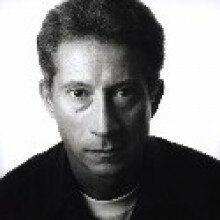
H.J. Pieterse was born in Wageningen, the Netherlands. At an early age he emigrated to South Africa, where he studied linguistics. He made is debut in 1989 with a volume of poems entitled Alruin (‘Mandrake’), the forked root of the Mandragora resembling a gnarled human form.
In ancient and medieval times it was used as a narcotic and and aphrodisiac, and it was believed to have magical powers. It was assumed to be growing under gallows, from the seed of the hanged. The title poem opens with: ‘I have drunke Lethe and Mandragora to forget thee’. The collection has for a motto these lines by Dylan Thomas: ‘The force that through the green fuse drives the flower / Drives my green age; that blasts the roots of trees / Is my destroyer.’ For his impressive debut Pieterse received the Eugène Marais prize and the Ingrid Jonker Prize. The critic T.T. Cloete even compared Pieterse with the famous Dutch poet Herman Gorter and described the collection as elementary and full of sensual perceptions: an ‘extraordinary collection full of vigour, full of new experiences and wonderful possibilities.’ In Alruin, Pieterse’s love of nature and music is apparent in such poems as ‘Alban Berg’s Violin Concerto’ and ‘Mahler, 1911’.
In 2000, after a more than ten-year silence, Pieterse published his second volume of poems, Die burg van hertog Bloubaard (‘Duke Bluebeard’s Castle’). Pieterse uses the Bluebeard motif in giving his poetic endeavour the form of a quest. The collection has two motto’s: one quoted from Rilke: ‘Nirgends Geliebte, wird Welt sein, als Innen. Unser Leben geht hin mit Verwandlung. Und immer geringer schwindet das Aussen’ (‘Beloved, the world is nothing that is not within us. Our Life is continually overturned. And what is outside us, grows narrower and narrower.’) and one from Ted Hughes: ‘You were never / More than a step from Paradise.’ The first poem opens with: ‘Welcome to my castle. You seem surprised.’ We are indeed, and our surprise knows no end, as Pieterse weaves myth into his lines and takes us on trips to the stars, Stonehenge and Krakow. As in the earlier volume, there are musical interludes (Béla Bartók) and images from nature. The three last poems in ‘Mapungubwe’ take us to the ruins of the legendary kingdoms on the Limpopo river that flourished in the 13th century. At the end of the collection we find ‘Keys’, explanations fitting the poems in the rooms of this castle of verse. The cover shows a picture of the ruin of the castle of Gille de Rais, the ‘original’ of Bluebeard’s castle.
Pieterse has written reviews in several fields of art. He is chief editor of the Tydskrif vir Letterkunde. In 1998 he published a volume of short stories, Omdat ons alles is (‘Because We Are Everything’). He plays the piano, the clarinet and the didgeridoo, and is fond of sports, including tennis, hang gliding and bungi jumping. H.J. Pieterse teaches Afrikaans at the University of South Africa.
[H.J. Pieterse took part in the Poetry International Festival Rotterdam 2001. This text was written on that occasion.]
http://www.tafelberg.com/skrywers/hpieterse.html

